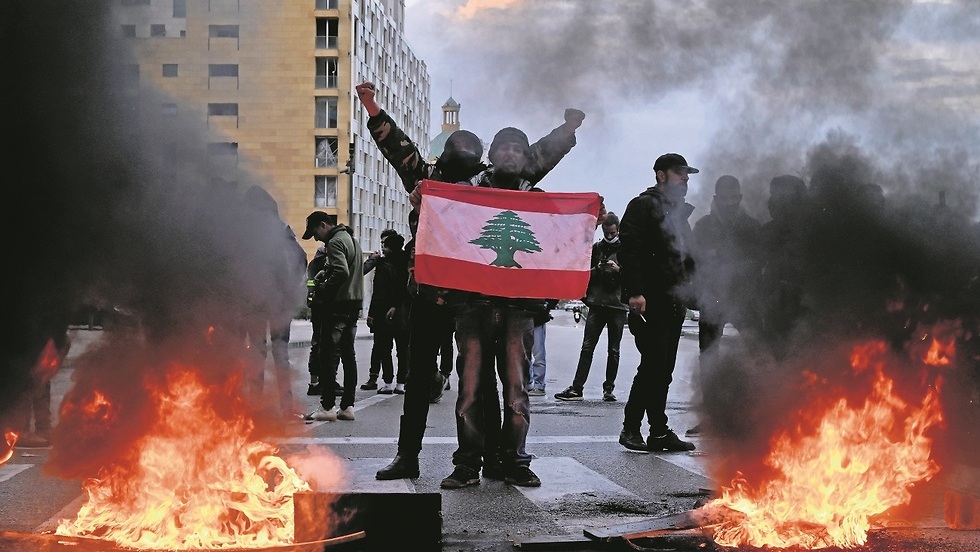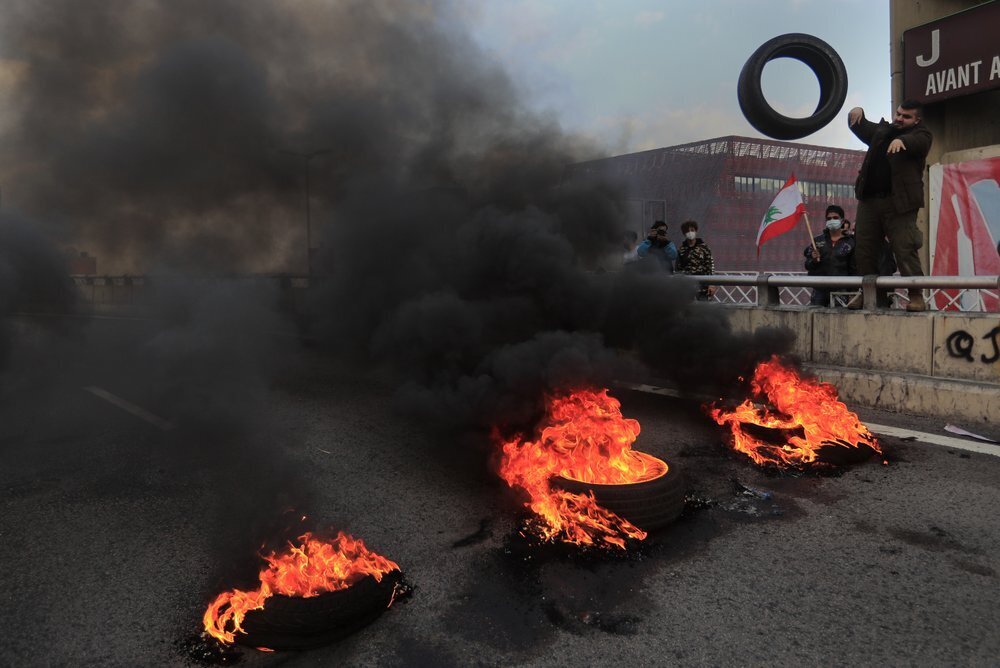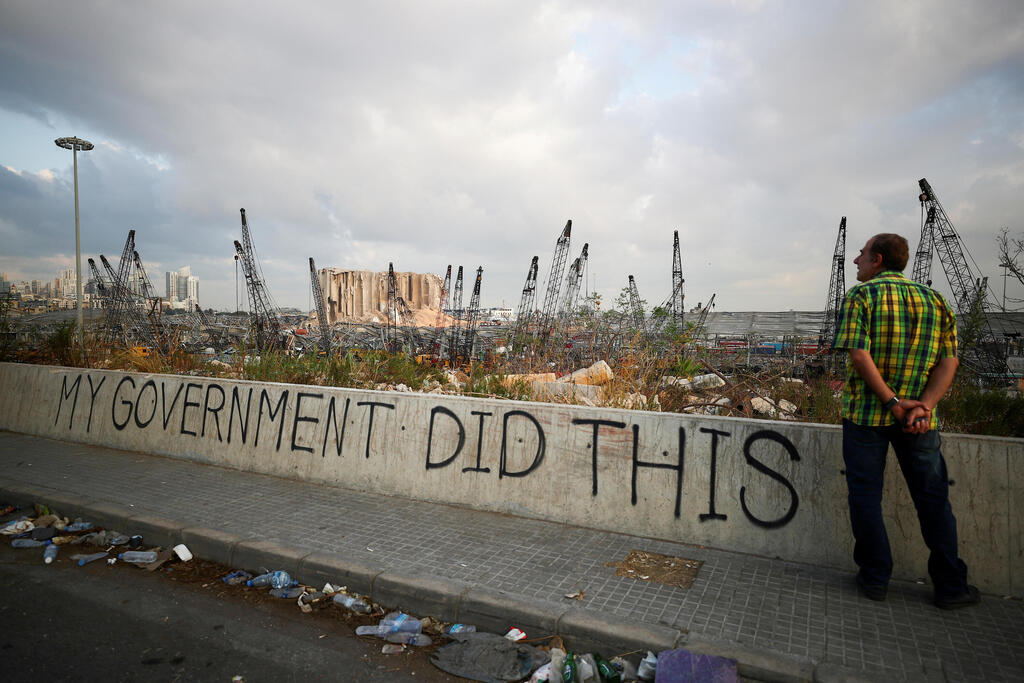Getting your Trinity Audio player ready...
Lebanon's severe economic and financial crisis is likely to rank as one of the worst the world has seen in more than 150 years, the World Bank said in a report released Tuesday.
The World Bank said that since late 2019, Lebanon has been facing compounded challenges, including its largest peace-time economic and financial crisis, the spread of coronavirus and a massive blast at Beirut's port last year that is considered as one of the largest non-nuclear explosions in history.
3 View gallery


Lebanese protesters take to the streets of Beirut to demonstrate against the cost of living, March 2021
(Photo: EPA)
The crisis has worsened in recent months with political bickering between rival groups delaying the formation of a new government, after the Cabinet of outgoing Prime Minister Hassan Diab resigned days after the Aug. 4 blast.
The explosion in the Port of Beirut killed 211 people, wounded more than 6,000 and damaged entire neighborhoods.
"Policy responses by Lebanon's leadership to these challenges have been highly inadequate," the report said. "The economic and financial crisis is likely to rank in the top 10, possibly top 3, most severe crises episodes globally since the mid-nineteenth century."
3 View gallery


A Lebanese protester blocks a main highway in the town of Jal el-Dib, north of Beirut, March 2021
(Photo: AP)
It said the country's gross domestic product is projected to contract 9.5% in 2021, after shrinking by 20.3% in 2020 and 6.7% the year before. Lebanon's gross domestic product plummeted from close to $55 billion in 2018 to an estimated $33 billion in 2020, while GDP per capita fell by around 40% in dollar terms, the report said.
"Such a brutal contraction is usually associated with conflicts or wars," the World Bank said.
For decades, Lebanon has been dominated by the same political elites, many of them former warlords and militia commanders from the civil war. Corruption has been widespread over the past decades, brining the tiny country to near bankruptcy.
In March 2020, Lebanon defaulted on paying back its debt for the first time in its history as the local currency lost more than 85% of its value.
Tens of thousands have lost their jobs while many others left the country seeking opportunities abroad. Nearly half the country's 5 million people live in poverty.
3 View gallery


A man stands next to graffiti at the site of a massive blast at Beirut port last year
(Photo: Reuters)
"Lebanon faces a dangerous depletion of resources, including human capital, and high skilled labor is increasingly likely to take up potential opportunities abroad, constituting a permanent social and economic loss for the country," said Saroj Kumar Jha, the World Bank regional director.
"Only a reform minded government, which embarks upon a credible path toward economic and financial recovery" can reverse further sinking of Lebanon, he said.
In recent weeks, with foreign currency reserves dwindling at the central bank, Lebanon has been witnessing severe shortage in medicines as well as fuel, with people having to wait in line at gas stations to fill their cars. Electricity cuts last more than 12 hours a day.

